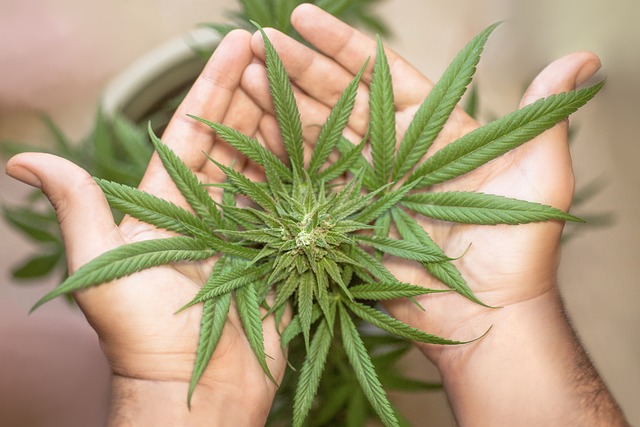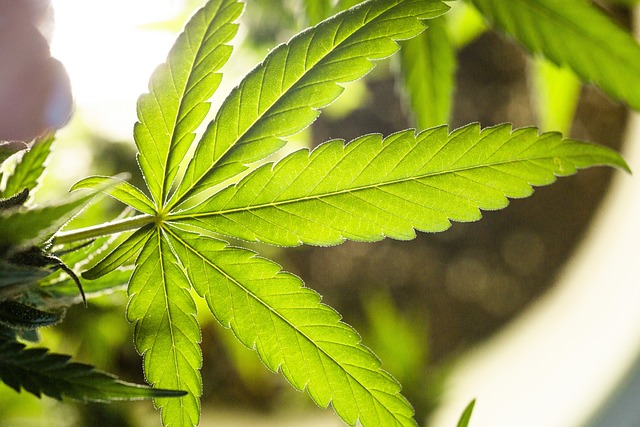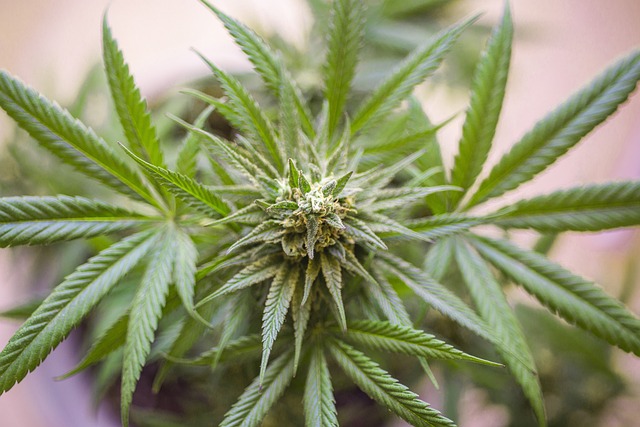2023 has seen THCA, the non-psychoactive cannabinoid found in cannabis, gain significant traction in California's regulated cannabis market. With its therapeutic potential and health benefits, THCA has become a preferred choice for consumers seeking wellness effects without psychoactive influence. This shift aligns with California's legislative evolution, starting from Proposition 215 in 1996 to the full legalization of recreational cannabis with Proposition 64 in 2016, which explicitly allows THCA products with less than 0.3% THC. The state's robust cultivation and distribution networks have enabled the availability of high-quality THCA flower, reflecting California's role as a pioneer in legalizing and exploring the benefits of this compound. As a result, THCA is legally recognized in California, offering a wide range of products for consumers looking to engage with cannabis's therapeutic properties without the high associated with THC. This development underscores the importance for consumers and producers alike to stay informed about the changing legal landscape regarding cannabinoids like THCA.
Explore the emerging landscape of THCA flower, a non-psychoactive cannabinoid gaining prominence in California’s evolving legal cannabis market. This article delves into the unique properties and potential benefits of THCA, the precursor to THC, and its growing role in California’s cultivation and consumption practices. From its historical legislation roots to the science behind its effects, we examine the rise of THCA flower within the Golden State’s legal framework. Join us as we navigate the terpene-rich profiles, cultivation nuances, and consumer considerations that make THCA a topic of increasing interest for those curious about the full spectrum of cannabinoids.
- THCA Flower's Rise in Popularity Amidst Legal Changes in California
- Understanding THCA: The Non-Psychoactive Precursor to THC
- Historical Context of THC and THCA Legislation in the Golden State
THCA Flower's Rise in Popularity Amidst Legal Changes in California

The rise in popularity of THCA flower, particularly within the context of California’s evolving legal landscape, has been marked by a significant shift in consumer preferences and market dynamics. As California continues to lead the way in cannabis reform, products containing tetrahydrocannabinolic acid (THCA), which is the raw form of THC found in raw cannabis plants, have gained traction. Unlike its psychoactive counterpart THC, THCA is non-psychoactive, offering potential wellness benefits without the high traditionally associated with cannabis consumption. This has opened up new avenues for consumers seeking alternatives to other cannabinoid products. The passage of Proposition 64 in 2016, which legalized the recreational use of cannabis for adults in California, paved the way for a more expansive exploration of cannabis varieties and their derivatives. THCA flower, often touted for its potential health benefits and versatility in consumption methods, has become increasingly accessible to a broader audience as a result of these legal changes. With the state’s robust infrastructure for cannabis cultivation and distribution, Californian producers have been at the forefront of supplying high-quality THCA flower to meet the growing demand. This surge in popularity underscores the importance of staying informed about the latest legal status of cannabinoids and their derivatives, as consumer choices continue to evolve alongside regulatory frameworks.
Understanding THCA: The Non-Psychoactive Precursor to THC

Cannabidiolic acid (CBDa) and tetrahydrocannabinolic acid (THCA) are two naturally occurring compounds found in cannabis sativa, the plant from which both marijuana and hemp are derived. THCA is the non-psychoactive precursor to delta-9-tetrahydrocannabinol (THC), the primary psychoactive component of cannabis. Unlike its isomer THC, THCA does not induce a high but has been studied for its potential therapeutic benefits, including anti-inflammatory, anti-nausea, anti-anxiety, and anti-proliferative properties. In the context of legal landscapes, THCA’s status is particularly intriguing; as of my knowledge cutoff in early 2023, THCA is legal in California under Proposition 64, which allows for the recreational use of cannabis products containing less than 0.3% THC. This makes THCA an attractive compound for those seeking the potential wellness effects of cannabinoids without the psychoactive impact.
The interest in THCA has grown significantly, particularly as consumers and researchers alike explore its unique properties. In California, where the cannabis market is highly regulated, products rich in THCA are gaining popularity. These can be consumed in various forms, including raw flower, capsules, and concentrates. The legal distinction between THCA and THC under state law has led to a niche market for THCA-rich products, which are marketed for their potential health benefits without the intoxicating effects associated with THC. As such, understanding THCA, its legal status, and how it differs from its psychoactive counterpart is crucial for anyone interested in the cannabis industry, especially within a state like California where the regulatory environment is evolving rapidly.
Historical Context of THC and THCA Legislation in the Golden State

California’s legislative landscape has undergone significant transformation with regard to cannabinoids, particularly THC-A (THCA), a non-psychoactive precursor to THC found in cannabis plants. The journey towards the legalization of THCA began decades ago when California first approved the use of medical marijuana via Proposition 215 in 1996. This groundbreaking legislation allowed patients with debilitating conditions to access cannabis for therapeutic purposes, laying the foundation for future reforms. Over the subsequent years, a series of legislative acts further shaped the legal framework, culminating in the Adult Use of Marijuana Act (Prop 64) in 2016, which fully legalized the recreational use of cannabis for adults 21 and over. Within this broader context, THCA’s potential benefits as a non-intoxicating compound attracted attention, leading to its explicit inclusion in California’s legal framework. Today, THCA is recognized for its therapeutic properties, and it is legally permissible in various forms, including flowers, within the state’s regulated cannabis market. This has opened doors for research into its potential health benefits and expanded consumer choices, solidifying California’s role as a pioneer in the legal landscape of THCA.
2023 has marked a pivotal moment for the THCA flower, with its rise in popularity soaring amidst the evolving legal landscape in California. As the state continues to refine its approach to cannabis and its various compounds, the non-psychoactive THCA has emerged as a subject of significant interest due to its potential therapeutic benefits and distinct effects compared to its psychoactive counterpart, THC. Historically, California’s legislative journey with these cannabinoids has been one of pioneering change, paving the way for a new era in the cannabis industry. Today, the discussion around THCA flower being legal in California is not just academic but a reflection of the dynamic interplay between policy, science, and consumer demand. As this sector continues to mature, it’s clear that understanding the nuances of THCA will be key for both enthusiasts and legislators alike.
